Alberta
Alberta NDP Opposition says Albertans need help to pay utility bills
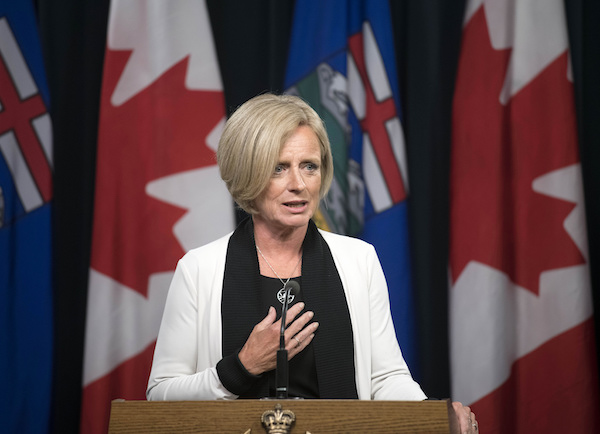
From the Alberta NDP
NDP CALLS FOR UTILITY BILL RELIEF IN RESPONSE TO SHOCKING BILLS DURING PANDEMIC, ECONOMIC DOWNTURN
Alberta’s NDP is calling for major relief for consumers following a sudden surge in constituents coming forward with massive cost increases on their monthly electricity and overall utility bills.
The Office of the Utilities Consumer Advocate (UCA) cites a number of contributing factors to the upswing in prices in Alberta, including increased consumption while people are staying home to observe COVID-19 public health orders, increased use during the winter, increased costs for natural gas and electricity and increased transmission and distribution charges.
“There’s a compounding effect here and it’s hammering household budgets,” said NDP Leader Rachel Notley. “Many Albertans have to use more natural gas and electricity if they work from home or spend more time at home to help protect their communities from the spread of COVID. Couple that with soaring prices for natural gas and electricity and you’re seeing massive bills and no relief for families.”
In 2016, the NDP Government capped electricity prices under the Regulated Rate Option at 6.8 cents per kilowatt hour; however, Jason Kenney and the UCP removed it in late 2019. According to the UCA, average electricity prices have exceeded that previous cap in January, February and March of this year — the highest price was reported in February by EPCOR, which charged an average of 8.95 cents per kilowatt hour.
As well, natural gas prices are at highs not seen in seven years, with prices in March exceeding four cents per gigajoule — the last time prices were this high was in June 2014. For context, rates were just 1.6 cents per gigajoule in March 2020.
In response, the NDP is calling for the following four actions to be taken by the UCP immediately:
- Provide direct consumer relief to two-thirds of Albertans (those earning up to $55,000 annually as an individual or $102,500 per couple). Model the relief program after the COVID-19 Energy Assistance Program offered by the Government of Ontario, which provided customers with up to $750 in support both their electricity and natural gas bills. Consumers can apply for relief on both bills separately, providing total potential relief of $1,500.
- Reinstate the Regulated Rate Option cap for electricity at 6.8 cents per kilowatt hour.
- Reinstate the Utility Payment Deferral Program, which allowed consumers and businesses to defer payment of bills but which ended last June.
- Ban all utility shutoffs for Alberta homes until the pandemic ends and public health orders are lifted.
Notley noted that Albertans are already struggling greatly during the pandemic and economic downturn, with tens of thousands of jobs lost in the province and currently the second-highest unemployment rate in Canada. In a recent Angus Reid poll, the percentage of Canadians reporting that they are worse off than they were a year ago is highest in Alberta.
“We need action to help Albertans in this time of great need,” Notley said. “People doing the right thing and staying closer to home during this pandemic should not be penalized for doing so. We need real consumer relief from these glaring utility bills and we need it to last for the duration of the pandemic, no matter when it might end.”
Thousands of Albertans have written or come forward to the NDP Caucus with complaints and concerns about their utility bills. Calgary father Hassan Ali Nakokara lost his job early in the pandemic and has been struggling to pay bills since. In February, his monthly utility bill jumped to $850 from $450 the month prior.
“It’s impossible for me to pay that,” Nakukara said. “I’m out of work, I’m trying to support my kids while I look for work. The last thing I can do is hand over hundreds to heat and power my home. I need help and I’m desperately hoping the government will step up to help me and so many others.”
Fellow Calgarian Carolyn Nystrom said she and her husband have lived in their home since 2012 and paid between $250-300 for utilities per month. Her bill has been increasing rapidly since December – for March, the total reached $576. Nystrom said it appears the greatest increases are being seen on electricity and transmission charges.
“We are in a pandemic,” Nystrom said. “People have lost their jobs. People have spent their savings. My husband and I have both been fortunate to keep our jobs through all of this. Even though we still get a paycheque, a bill doubling in three months is absolutely unaffordable … if companies like Enmax and Direct Energy can charge whatever they want per kilowatt hour or gigajoule, what can stop them? And what can we do? We live in Canada. Being able to turn lights on is not exactly an option here. We have to pay, and companies without regulations and caps know that.”
Correspondence and calls regarding spiking utility bills have come in from all over the province.
Airdrie mother Lisa Gilling said her most recent electricity bill shows the price being charged per kilowatt hour jumped from 5 cents to 19 cents per kilowatt hour and her bill for electricity alone totaled over $400.
“A three hundred per cent increase for a product or service is drastic but when it is an essential service, like electricity, it can be catastrophic, especially for a single-income family,” Gilling said. “Do you cut back on groceries in order to have lights and hot water?”
Mickey Moore, a senior living alone in Vermillion said his bill has risen by hundreds of dollars since the beginning of the year to more than $550 in March.
“Without some kind of control on essential service, with no real competition, how can we seniors expect to keep up on our fixed incomes?” Moore said. “Does the government plan to index seniors’ incomes to the rising utility costs? When we had regulated utility oversight there was some control and fairness applied.”
Alberta
Ford and Trudeau are playing checkers. Trump and Smith are playing chess
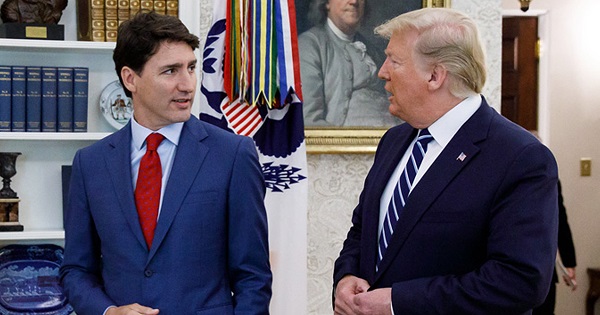
By Dan McTeague
Ford’s calls for national unity – “We need to stand united as Canadians!” – in context feels like an endorsement of fellow Electric Vehicle fanatic Trudeau. And you do wonder if that issue has something to do with it. After all, the two have worked together to pump billions in taxpayer dollars into the EV industry.
There’s no doubt about it: Donald Trump’s threat of a blanket 25% tariff on Canadian goods (to be established if the Canadian government fails to take sufficient action to combat drug trafficking and illegal crossings over our southern border) would be catastrophic for our nation’s economy. More than $3 billion in goods move between the U.S. and Canada on a daily basis. If enacted, the Trump tariff would likely result in a full-blown recession.
It falls upon Canada’s leaders to prevent that from happening. That’s why Justin Trudeau flew to Florida two weeks ago to point out to the president-elect that the trade relationship between our countries is mutually beneficial.
This is true, but Trudeau isn’t the best person to make that case to Trump, since he has been trashing the once and future president, and his supporters, both in public and private, for years. He did so again at an appearance just the other day, in which he implied that American voters were sexist for once again failing to elect the nation’s first female president, and said that Trump’s election amounted to an assault on women’s rights.
Consequently, the meeting with Trump didn’t go well.
But Trudeau isn’t Canada’s only politician, and in recent days we’ve seen some contrasting approaches to this serious matter from our provincial leaders.
First up was Doug Ford, who followed up a phone call with Trudeau earlier this week by saying that Canadians have to prepare for a trade war. “Folks, this is coming, it’s not ‘if,’ it is — it’s coming… and we need to be prepared.”
Ford said that he’s working with Liberal Finance Minister Chrystia Freeland to put together a retaliatory tariff list. Spokesmen for his government floated the idea of banning the LCBO from buying American alcohol, and restricting the export of critical minerals needed for electric vehicle batteries (I’m sure Trump is terrified about that last one).
But Ford’s most dramatic threat was his announcement that Ontario is prepared to shut down energy exports to the U.S., specifically to Michigan, New York, Wisconsin, and Minnesota, if Trump follows through with his plan. “We’re sending a message to the U.S. You come and attack Ontario, you attack the livelihoods of Ontario and Canadians, we’re going to use every tool in our toolbox to defend Ontarians and Canadians across the border,” Ford said.
Now, unfortunately, all of this chest-thumping rings hollow. Ontario does almost $500 billion per year in trade with the U.S., and the province’s supply chains are highly integrated with America’s. The idea of just cutting off the power, as if you could just flip a switch, is actually impossible. It’s a bluff, and Trump has already called him on it. When told about Ford’s threat by a reporter this week, Trump replied “That’s okay if he does that. That’s fine.”
And Ford’s calls for national unity – “We need to stand united as Canadians!” – in context feels like an endorsement of fellow Electric Vehicle fanatic Trudeau. And you do wonder if that issue has something to do with it. After all, the two have worked together to pump billions in taxpayer dollars into the EV industry. Just over the past year Ford and Trudeau have been seen side by side announcing their $5 billion commitment to Honda, or their $28.2 billion in subsidies for new Stellantis and Volkswagen electric vehicle battery plants.
Their assumption was that the U.S. would be a major market for Canadian EVs. Remember that “vehicles are the second largest Canadian export by value, at $51 billion in 2023 of which 93% was exported to the U.S.,”according to the Canadian Vehicle Manufacturers Association, and “Auto is Ontario’s top export at 28.9% of all exports (2023).”
But Trump ran on abolishing the Biden administration’s de facto EV mandate. Now that he’s back in the White House, the market for those EVs that Trudeau and Ford invested in so heavily is going to be much softer. Perhaps they’d like to be able to blame Trump’s tariffs for the coming downturn rather than their own misjudgment.
In any event, Ford’s tactic stands in stark contrast to the response from Alberta, Canada’s true energy superpower. Premier Danielle Smith made it clear that her province “will not support cutting off our Alberta energy exports to the U.S., nor will we support a tariff war with our largest trading partner and closest ally.”
Smith spoke about this topic at length at an event announcing a new $29-million border patrol team charged with combatting drug trafficking, at which said that Trudeau’s criticisms of the president-elect were, “not helpful.” Her deputy premier Mike Ellis was quoted as saying, “The concerns that president-elect Trump has expressed regarding fentanyl are, quite frankly, the same concerns that I and the premier have had.” Smith and Ellis also criticized Ottawa’s progressively lenient approach to drug crimes.
(For what it’s worth, a recent Léger poll found that “Just 29 per cent of [Canadians] believe Trump’s concerns about illegal immigration and drug trafficking from Canada to the U.S. are unwarranted.” Perhaps that’s why some recent polls have found that Trudeau is currently less popular in Canada than Trump at the moment.)
Smith said that Trudeau’s criticisms of the president-elect were, “not helpful.” And on X/Twitter she said, “Now is the time to… reach out to our friends and allies in the U.S. to remind them just how much Americans and Canadians mutually benefit from our trade relationship – and what we can do to grow that partnership further,” adding, “Tariffs just hurt Americans and Canadians on both sides of the border. Let’s make sure they don’t happen.”
This is exactly the right approach. Smith knows there is a lot at stake in this fight, and is not willing to step into the ring in a fight that Canada simply can’t win, and will cause a great deal of hardship for all involved along the way.
While Trudeau indulges in virtue signaling and Ford in sabre rattling, Danielle Smith is engaging in true statesmanship. That’s something that is in short supply in our country these days.
As I’ve written before, Trump is playing chess while Justin Trudeau and Doug Ford are playing checkers. They should take note of Smith’s strategy. Honey will attract more than vinegar, and if the long history of our two countries tell us anything, it’s that diplomacy is more effective than idle threats.
Dan McTeague is President of Canadians for Affordable Energy.
Alberta
Your towing rights! AMA unveils measures to help fight predatory towing
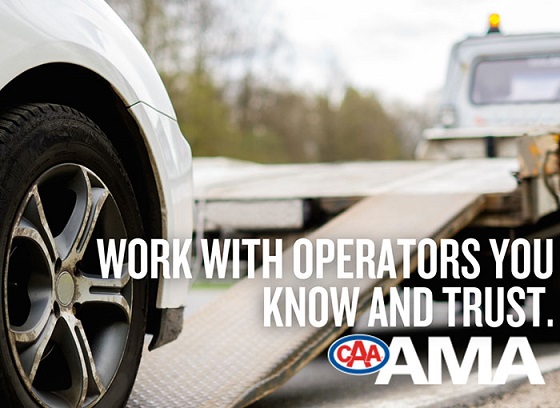
From the Alberta Motor Association
Know Before the Tow: Towing Rights in Alberta
Predatory towing is a growing concern in major cities across the province. The Alberta Motor
Association (AMA), in partnership with the Calgary Police Service and Calgary Fire Department,
wants to ensure Albertans are not only aware of this emerging issue but also know how to stop
it.
Today, AMA launches Know Before the Tow—a new, provincewide awareness campaign that
empowers Albertans with the knowledge needed to stay confident and in control when faced with
a tow scam. The campaign features a list of five key towing rights that every Alberta driver should
know:
1. You have the right to refuse unsolicited towing services.
2. You have the right to choose who tows your vehicle, and where, unless
otherwise directed by police.
3. You have the right to access your vehicle to retrieve personal items during a
storage facility’s business hours.
4. You have the right to ask if the towing company receives a kickback for taking
your vehicle to a particular storage facility or repair shop.
5. You have the right to a quote prior to service, and an itemized invoice prior to
making payment.
“Being in a collision or broken down at the roadside is stressful enough; the last thing any Albertan
needs is high pressure from an unscrupulous tower,” says Jeff Kasbrick, Vice-President,
Advocacy and Operations, AMA. “These towing rights are clear and remind every Albertan that
they’re in the driver’s seat when it comes to who they choose to tow their vehicle.”
Edmonton and Calgary in particular are seeing increasing reports of predatory towing. Unethical
operators will arrive at a collision or breakdown scene uninvited, create a false sense of urgency
to remove the vehicle, and ultimately leave drivers facing huge fees.
Starting today, Albertans can visit ama.ab.ca/KnowBeforeTheTow to download a digital copy of
their towing rights, helping them feel confident if faced with a tow scam. And soon, all AMA centres
will offer free print versions, which are small enough to tuck in a glovebox.
“Alberta’s towing industry is still highly reputable, with the vast majority of operators committed
to fair and professional service. In fact, AMA and our roadside assistance network is proud to
represent 80% of all private-passenger tows in the province, so our members can be confident
that we’ll always protect them—just as we have for nearly 100 years,” says Kasbrick.
“By knowing your rights and choosing trusted providers like AMA, you can avoid unnecessary
stress, costs, and uncertainty. Because the road to recovery after a collision shouldn’t have to
include fighting for your vehicle.”
Sergeant Brad Norman, Calgary Police Service Traffic Section, says law enforcement continues
to work diligently with first responders and community partners like AMA to put the brakes on
predatory towers, who “are showing up at collision sites and pressuring overwhelmed and
frightened victims into paying high towing rates.”
“Our priority is to ensure the safety of collision victims, the public, and first responders at
collision sites. Part of this effort is educating motorists about their rights so that they Know
Before the Tow that they can say no to unsolicited towing services and choose a reputable
tower of their choice instead,” says Norman. “No one deserves to be taken advantage of after
being involved in a collision.”
To learn more, and to view an expanded version of Alberta towing rights, visit
ama.ab.ca/KnowBeforeTheTow
-
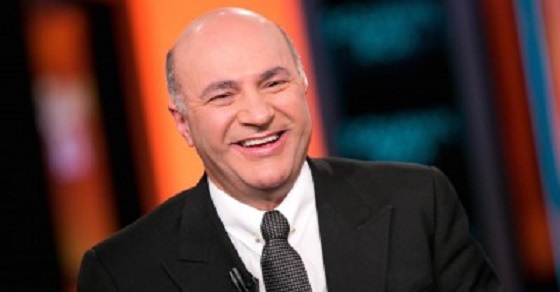
 Alberta13 hours ago
Alberta13 hours agoProposed $70 billion AI data centre in MD of Greenview could launch an incredible new chapter for western Canadian energy
-

 COVID-192 days ago
COVID-192 days agoAustralian doctor who criticized COVID jabs has his suspension reversed
-

 Business1 day ago
Business1 day agoMassive growth in federal workforce contributes to Ottawa’s red ink
-

 Alberta9 hours ago
Alberta9 hours agoYour towing rights! AMA unveils measures to help fight predatory towing
-
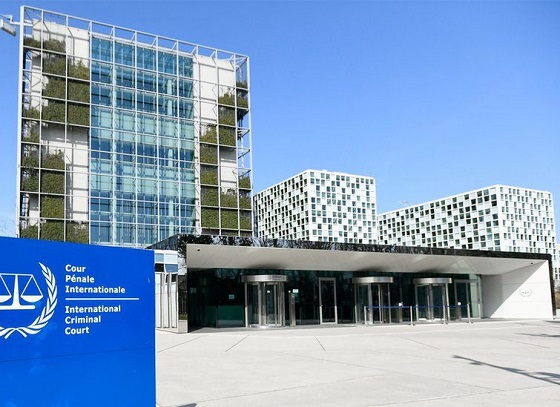
 Frontier Centre for Public Policy1 day ago
Frontier Centre for Public Policy1 day agoFalse Claims, Real Consequences: The ICC Referrals That Damaged Canada’s Reputation
-
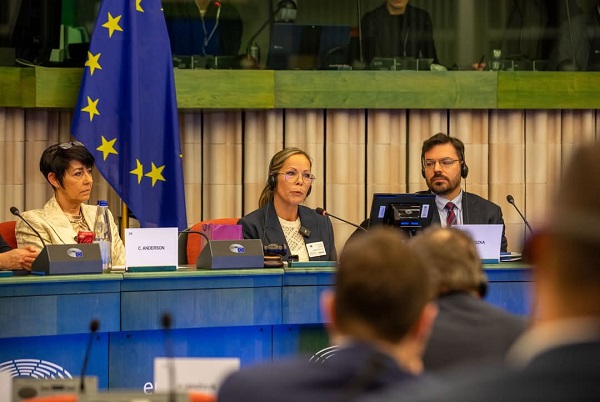
 COVID-192 days ago
COVID-192 days agoFreedom Convoy leader Tamara Lich calls out Trudeau in EU Parliament address for shunning protesters
-
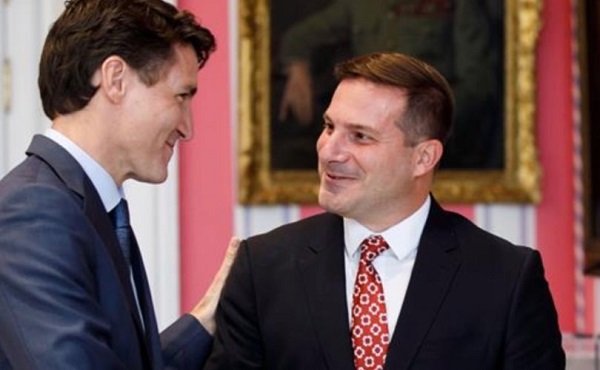
 COVID-191 day ago
COVID-191 day agoFormer Trudeau minister faces censure for ‘deliberately lying’ about Emergencies Act invocation
-

 National1 day ago
National1 day agoWhen’s the election? Singh finally commits. Poilievre asks Governor General to step in




